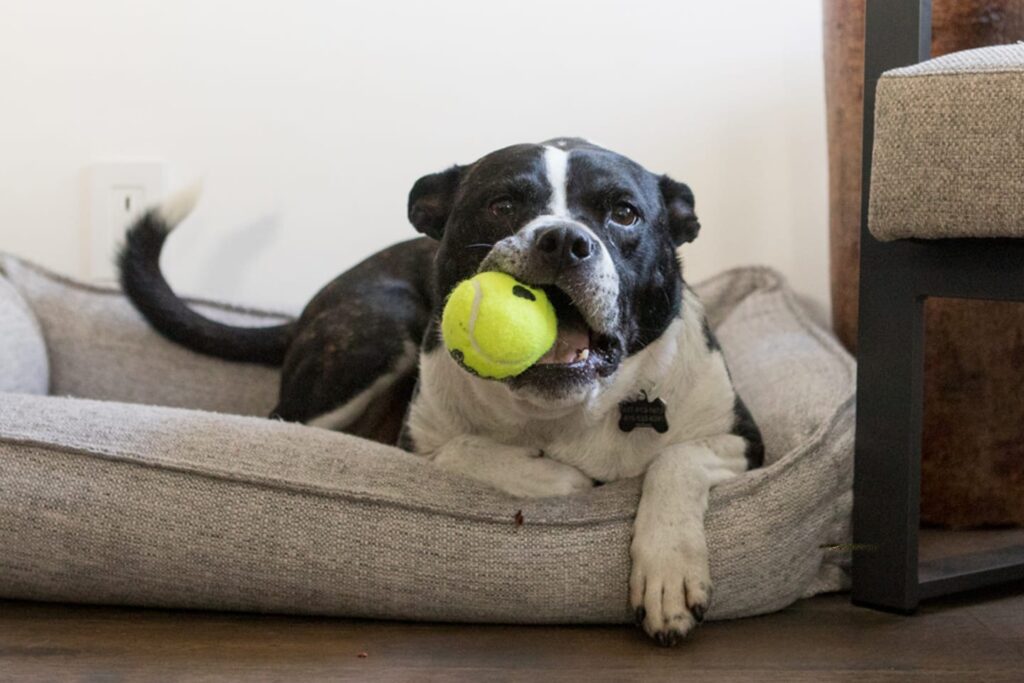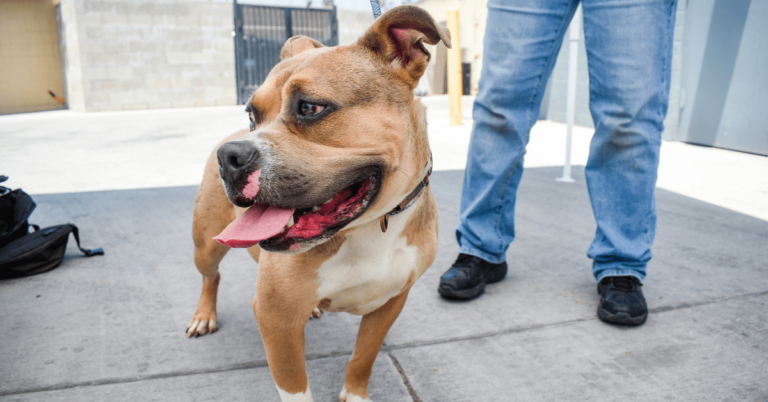The Definitive Guide to Cleaning your Pet’s Belongings

Having a pet means living a life of unconditional love, constant companionship and let’s face it, non-stop cleaning. Hey, pets are awesome. But they’re also terrible roommates. They slobber and shed on our stuff, occasionally go to the bathroom on the floor and absolutely never clean up after themselves. Good thing they’re cute!
Because we love our pets so much, it’s important to clean key items of theirs regularly and thoroughly to prevent them from getting sick. Pet-loving bacteria thrives on their blankets and beds, in their bowls and everywhere in between. Luckily, we did the homework to bring you the definitive guide to cleaning your pets belongings, so all you have to do is read, wash and repeat.
Water and Food Bowls (a.k.a Microbe Convention Centers)
Should be cleaned: At least once daily or with every meal
If there’s one take away from this article, it’s that you should thoroughly clean your pet’s food and water dishes every day. First of all, let’s consider the scene of a dog bowl. There’s saliva, room-temperature food, fur and possibly other things that we don’t even think about, all of which can contain bacteria that can make your dog sick.
You don’t like to eat off of dirty dishes (we hope) because it’s gross. Your pet might not know it’s gross but it is. So, wash your pet’s food and water dishes every day in hot, soapy water or throw them in the dishwasher. (Plastic bowls should go on the top rack). You’re doing them and yourself a huge favor by keeping them healthy and keeping your money in your wallet and not in your vet’s.
Bedding and Blankets (i.e. Germ Condos)
Should be Cleaned: Weekly
Steel yourself for some majorly gross info: disease-causing bacteria can live on your pet’s bed for up to a year and doesn’t even need your pet around to thrive. (!) That’s why it’s super important to clean your pet’s beds and blankets weekly and thoroughly. First, remove as much hair as possible from them and then put them in the washing machine on the hot cycle, above 140 degrees Fahrenheit and 60 degrees Celsius. Use a mild detergent that won’t irritate your pet’s skin or mucous membranes and add ¼ cup of vinegar to the load if the blankets or bed are especially stinky or furry. Vinegar kills odors and removes fur. Bonus!
Hard Toys (a.k.a. Bastions of Bacteria)
Should be Cleaned: Weekly
Consider the travel pattern of the average dog toy. In any given day, a toy can go into your dog’s mouth, onto the floor, back into the your dog’s mouth, into the yard, back into the mouth and then into your dog’s bed. Ick!
For this reason, hard toys made from plastic and rubber should go into the top rack of the dishwasher weekly with an either very mild detergent or without any detergent at all. Just make sure the water is hot. You can let the toys air dry but if you’re confident they won’t melt, you can dry them in the dishwasher too.
Soft Toys (a.k.a Dust Mite Shangri-La)
Should be Cleaned: Weekly
If you have allergies, you’re probably well-versed in dust mites. If you don’t, (lucky) dust mites are tiny bugs that live in bedding, your mattress and of course, your pet’s soft toys. Dust mites trigger allergies and can make pets and humans miserable. Harrumph.
Like bedding, wash soft toys in the washing machine weekly in hot water and mild detergent. Dry toys on a low setting or let air dry if the weather permits. A note for cat owners: do not wash soft toys that are stuffed with catnip, unless you want to be cleaning wet catnip out of your washing machine!
Here’s a quick breakdown of other pet-related items:
Litter boxes
Should be Scooped: Daily or whenever there’s a deposit if possible. Dump the litter weekly and clean out the box with a mild soap. Use baking soda in between to keep odors at bay.
Leashes and Harnesses
Should be Cleaned: Every few weeks. Good news on this one: you can put these in the dishwasher or in the washing machine. Avoid putting leather leashes in any machine though.
Collars
Should be Cleaned: Weekly in the dishwasher or in the washing machine. Collars are pretty gross because they live on your pet’s skin. Make sure you have a spare collar with an ID tag for when you’re washing. The last thing you need is your pet escaping without his or her collar!


